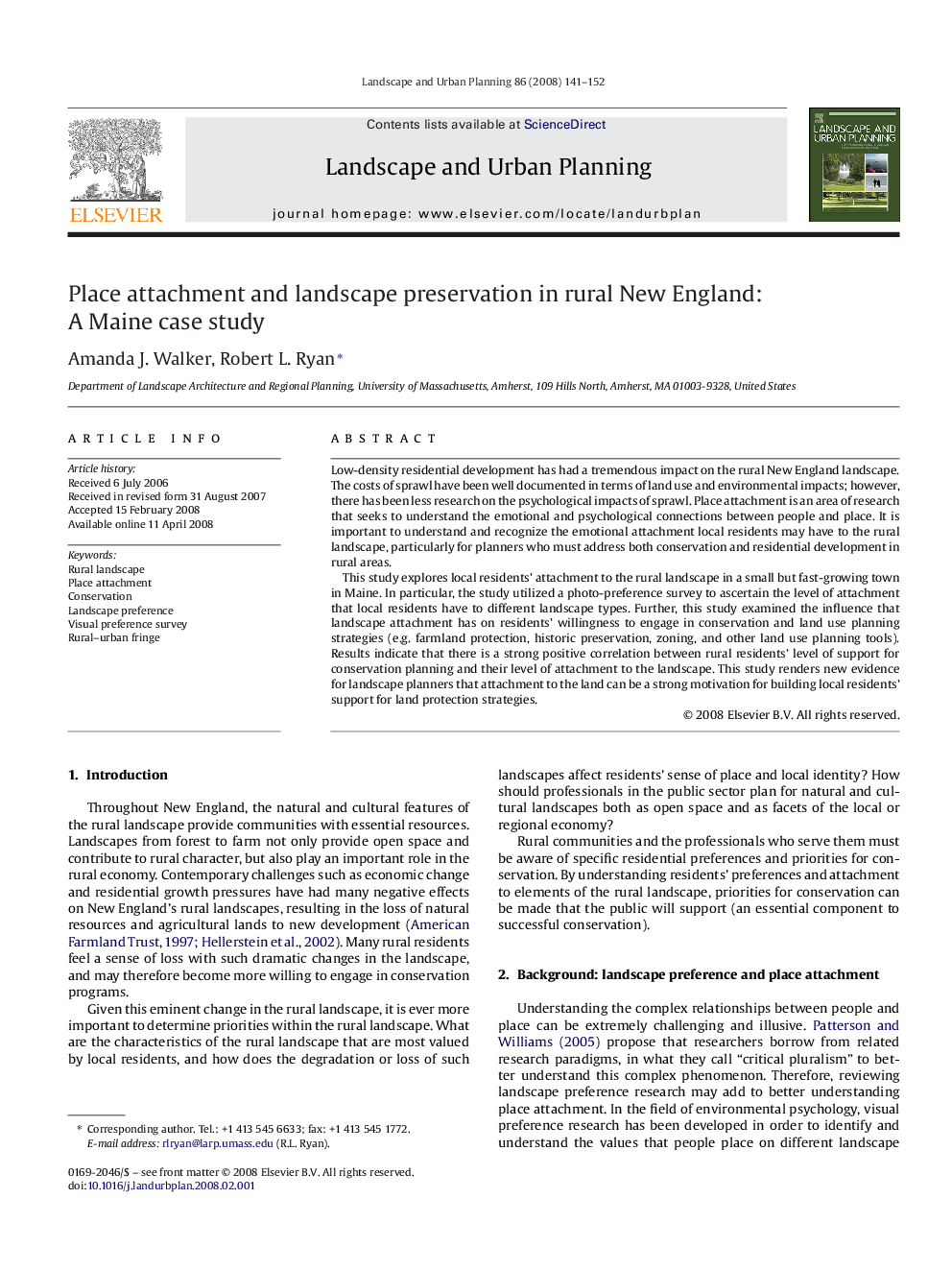| Article ID | Journal | Published Year | Pages | File Type |
|---|---|---|---|---|
| 1050055 | Landscape and Urban Planning | 2008 | 12 Pages |
Low-density residential development has had a tremendous impact on the rural New England landscape. The costs of sprawl have been well documented in terms of land use and environmental impacts; however, there has been less research on the psychological impacts of sprawl. Place attachment is an area of research that seeks to understand the emotional and psychological connections between people and place. It is important to understand and recognize the emotional attachment local residents may have to the rural landscape, particularly for planners who must address both conservation and residential development in rural areas.This study explores local residents’ attachment to the rural landscape in a small but fast-growing town in Maine. In particular, the study utilized a photo-preference survey to ascertain the level of attachment that local residents have to different landscape types. Further, this study examined the influence that landscape attachment has on residents’ willingness to engage in conservation and land use planning strategies (e.g. farmland protection, historic preservation, zoning, and other land use planning tools). Results indicate that there is a strong positive correlation between rural residents’ level of support for conservation planning and their level of attachment to the landscape. This study renders new evidence for landscape planners that attachment to the land can be a strong motivation for building local residents’ support for land protection strategies.
